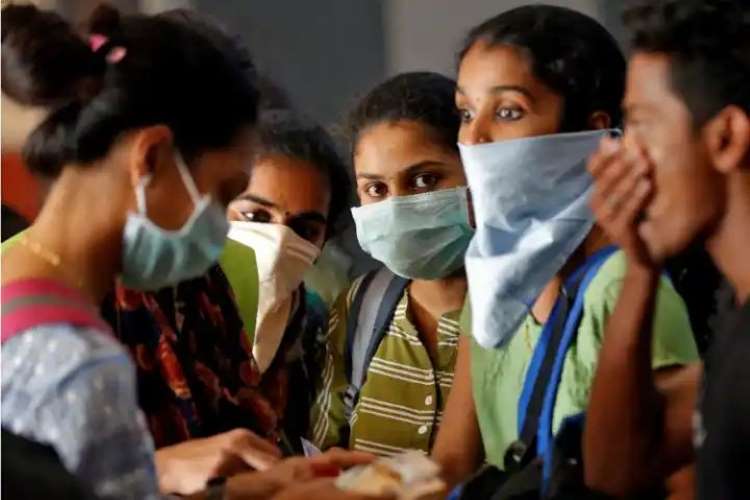
By Surabhi Mittal
India has made great strides towards gender parity and women empowerment and this is evident when one travels through rural areas. The achievement is amply reflected in the adaptability and functioning of self-help groups (SHGs) during the COVID-19 pandemic. SHGs under Mission Shakti in Odisha, JEEViKA in Bihar and similar missions in other states helped meet the increased demand for masks, sanitisers and personal protective equipment (PPE). In Kerala, women cooperatives of Kudumbashree are running community kitchens across the state to deliver food to the local community and to quarantine facilities. Many of these women SHGs are also using their social networks to spread awareness about the safety and precaution measures to combat the deadly Covid-19 virus.
No wonder the focus of Prime Minister Narendra Modi’s speech at UN ECOSOC on July 17, 2020 was on women empowerment. He said about 70 million women in Indian villages are part of self-help groups under the Livelihood Mission. But there are several millions of women who belong to different occupations and sectors and are not equally empowered. Besides being economically vulnerable with poor access to resources, women find themselves more exploited during the Covid-19 pandemic.
READ I Budget 2021 should learn Covid-19 lessons, strengthen public health system
Covid-19 hits women empowerment efforts
Higher incidence of domestic violence has been reported and the trend is higher among the poorer and distressed sections of the society. Employed women, along with taking care of their official responsibilities as they work from home, also have the additional burden of household chores. Even in cases of layoffs and wage cuts, it is a known fact that the actions would be biased against women.
In the rural landscape, reverse migration is putting pressure on rural employment despite MNREGA creating more work. This has led to increased incidence of low wages or unpaid work for rural women, affecting women empowerment. Several agricultural reforms like amended Essential Commodities Act, e-trading of agricultural produce and temporary suspension of APMCs have been initiated during the crisis. These steps will ensure that the agricultural sector growth is not hampered, and farmers get better market opportunities and right prices for their produce. But women are not usually recognised as farmers though they contribute about 60% of the farm workforce and 40% of the labour time in agricultural activities.
READ I Budget 2021: Strategic imperatives for defending a $5 trillion economy
Women suffered more during Covid-19 outbreak
Women have far less access than men to equipment like mobile phones and smart phones as well as the internet. This leads to their exclusion from the digital market space. Direct procurement may not ensure equal benefits to women in agriculture. Poor access to agricultural extension, technical knowledge, and physical participation in markets by women are getting affected in times of reduced mobility.
Farmers and livestock owners had faced constraints in access to seed, feed, fertiliser, and fodder. The households headed by women are further constrained by lack of access to inputs, impacting their productivity as well as income. This will have a major impact on women empowerment in the country.
READ I Budget 2021: Ideas to put Indian economy back on track
The rural migratory population has faced the problems of hunger and food security during the Covid-19 outbreak. They got impacted on all the parameters of the definition of food security — availability, accessibility, utilisation, and adequacy. There is also a social norm of women eating after feeding her family. In case of a food shortage, women have to eat leftover food that is nutrient deficient. With increased unemployment and food insecurity, it is most likely that the female members of the family would have reduced their food intake and thus suffer from malnutrition.
Children are one of the biggest victims of the Covid-19 pandemic. There is a profound impact on their well-being especially of those belonging to marginal and socio-economically backward communities. Closure of educational institutions has not only worsened the learning situation, but also the access to the mid-day meals programme. Children dropping out of school will face numerous challenges such as child labour, low education levels and employability skills, which will affect their future. Further, increasing nutritional deficiency and exposure to stress will act as an obstacle in the path of childhood development.
READ I Union Budget 2021: Seven ideas to transform Indian agriculture
Covid-19 Packages must support women
The Covid-19 pandemic and the stringent measures taken to curb its spread will have a long-term impact on the health of women and children. The overall impact will affect their authority and decision-making power and thus reversing the path of women empowerment that has been achieved so far through several initiatives and programmes.
It is already recognized that Covid-19 situation is not just a health crisis, but it has widely impacted the economic and food security situation in the country. It is also important to realise that the current crisis will have much deeper impact on women than men. Thus, the programmes, policies and interventions need to ensure that the strategies address this to create a recovery path that is equitable and inclusive. It is expected that Budget 2021 to be presented on February 1 by finance minister Nirmala Sitharaman will take this factor into account while formulating the proposals.
(Surabhi Mittal is an agricultural economist and independent consultant. She can be reached at surabhimittal@gmail.com.)
